International
Europol identifies 821 “threatening” criminal networks in the EU, many active in Spain
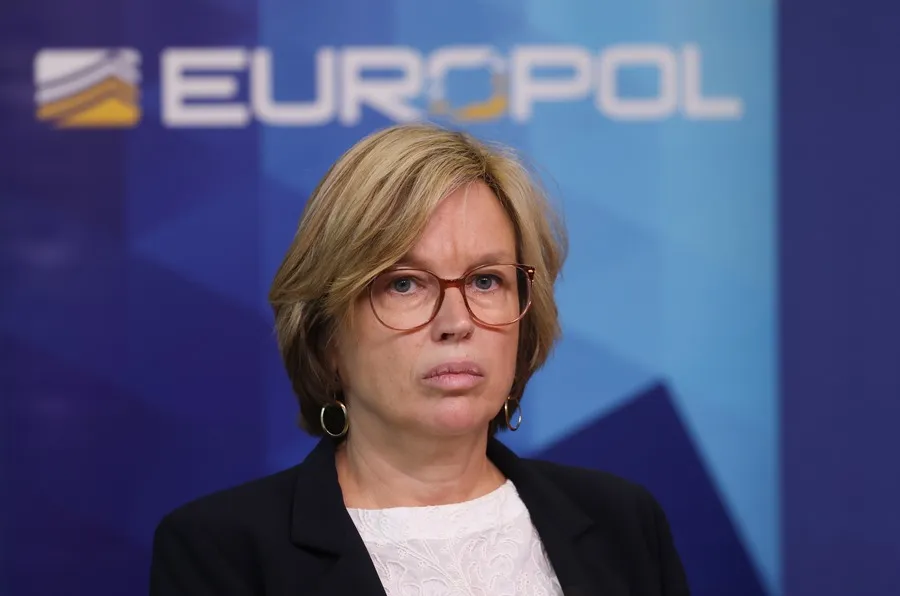
The Europol agency has identified 821 “very threatening” organized crime networks in the European Union, many of them active in Spain among other countries, in a report published this Friday, the first that analyzes in depth the details that make these organizations so dangerous.
The study, presented in Brussels, is based on the data provided by EU Member States and other countries and is a “step” to understand how these networks work and what their basic capabilities are, Europol said.
In Spain they operate networks integrated by nationals of Eastern countries, as well as Belgian-Dutch, Baltic, Romanian or Polish, among others.
“Each of the 821 most threatening criminal networks identified is unique. They vary significantly in terms of composition, structure, criminal activity, territorial control, duration over time, types of cooperation and a variety of other dimensions,” the document says.
However, there are some common characteristics that make them especially “threatening,” starting with their infiltration into the legal system, which make a network “omnipresent and destructive.”
In fact, more than 80% of active criminal networks in the EU misuse legal business structures (LBS) for their criminal activities.
The data show that these structures are infiltrated or used by criminal networks “in almost all sectors, including tourism, recycling, welfare and sports associations, as well as in retail and cultural activities.”
Three sectors are particularly affected by infiltration or criminal abuse: construction, hospitality and logistics, that is, transport and import and export companies.
Another characteristic of the most dangerous organizations is their “agility” to “infiltrate extensively” and the application of strategies that allow them to endure over time.
In addition, “they have no borders”, their scope is international as well as the members that make them up, although they often limit their criminal activity to a region or a limited number of countries.
About how they are directed, Europol explains that although there is usually a strong leadership close to operations, it is also possible to maintain control remotely.
They tend to specialize in a main business and operate with a wide degree of independence.
As for their activity, half of these organizations are involved in drug trafficking as their main business, although they are also dedicated to fraud, property-related crimes, migrant and human trafficking.
Money laundering is mainly done through the real estate sector (this is the case in 41% of cases).
Other common money laundering techniques include investments in high-value goods such as gold and luxury goods (27%), the use of cash-intensive businesses, for example in the hotel sector (20%) and the use of cryptocurrencies (10%).
As an example, the report cites the case of an Italian businessman of Argentine origin based in Marbella who uses his companies to hide both drug trafficking and money laundering activities.
Among those he directs is one that imports bananas from Ecuador to the EU and also has sports centers in Marbella, shopping centers in Granada and multiple bars and restaurants.
An Albanian accomplice of his, based in Ecuador, is in charge of the import of cocaine from Colombia to Ecuador and its subsequent distribution to the EU.
According to Europol, Ecuadorian fruit companies are used as a facade for these criminal activities.
Although not all networks use violence and corruption, doing so increases their level of threat.
There are other elements to better understand how they work but that do not necessarily make them more dangerous, starting with their structure.
Most are organized in a hierarchical way, and although strong leadership is important, it is not necessarily linked to specific individuals and in some cases it is replaceable (by inheritance, delegation or reorganization) and continues even after the sentence.
As for the nationalities of the members, the report points to the existing “great variety” and emphasizes that, in addition to the common criminal objective, “criminal networks are formed and persist due to a strong social cohesion,” something that also serves to attract young people.
When fighting them, Europol indicates, “not only the main criminal activities, but also the support and subsidiary activities that allow and support the networks and allow them to last long periods,” as well as the need for “international and interregional cooperation” must be examined.
International
Austrian man arrested in Croatia with deceased woman as passenger in his car
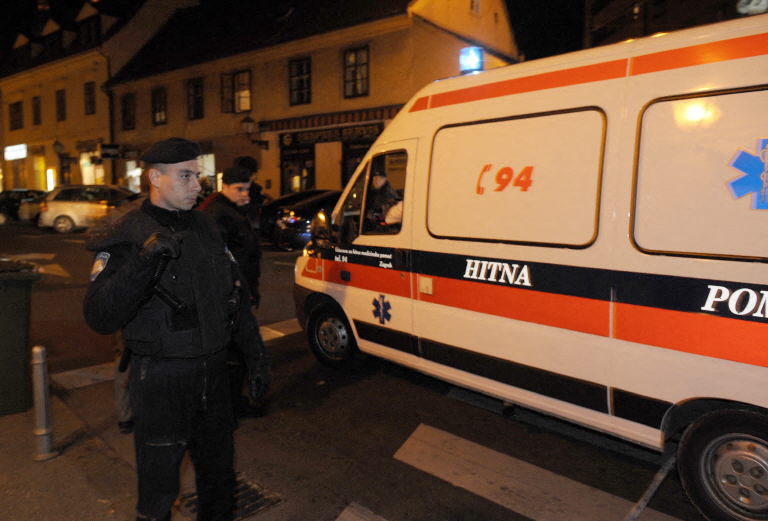
A 65-year-old Austrian citizen was arrested at a border checkpoint in Croatia after attempting to enter the country in his car with a deceased woman sitting as a passenger, police announced on Tuesday.
The man was detained in a routine check in late November in Gunja, a border area separating Bosnia from Croatia, the police told AFP. Suspicious because they saw “no consciousness or movement” from the passenger, Croatian officers called a doctor, who confirmed the death of the 83-year-old woman, also Austrian, according to her identification.
The woman’s relationship to the suspect is unknown. She had died in Bosnia, and the man intended to repatriate her body to Austria to “avoid the formalities related to transporting a corpse,” according to the police. Croatian media reported that the man was her legal guardian.
Once her death was confirmed, a funeral service took charge of the body.
International
Colombian nationals arrested for human trafficking and disappearance of migrant boat
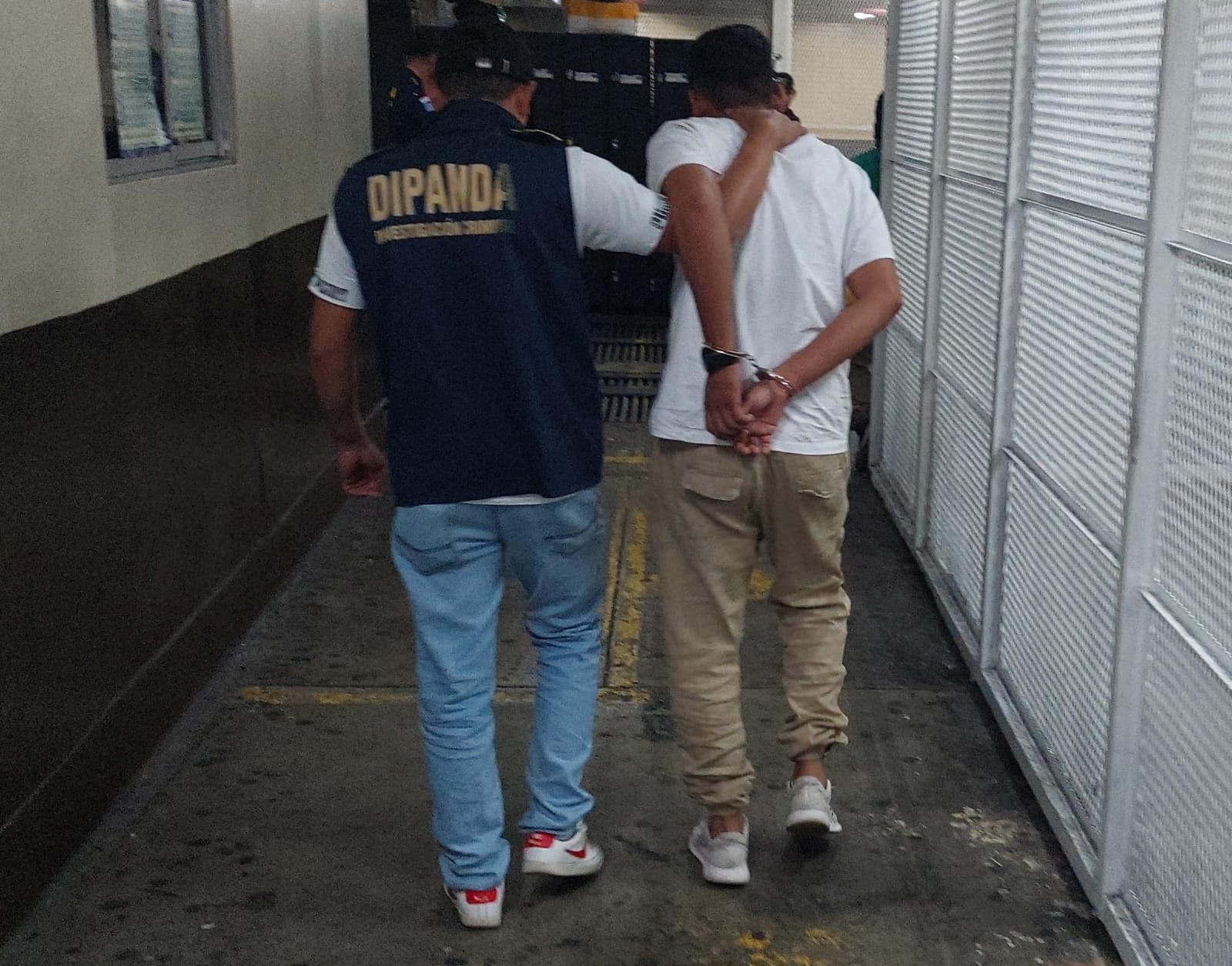
Colombian authorities arrested two nationals accused of the illegal trafficking of migrants to the United States and of endangering lives due to the disappearance of a boat with 40 people aboard, U.S. Department of Justice officials reported on Tuesday.
Hernando Manuel de la Cruz Rivera Orjuela, 52, and Luis Enrique Linero Pinto, 40, both Colombian citizens, were arrested on December 13 in Colombia at the request of the United States for their alleged involvement in a “transnational human trafficking operation,” the department said in a statement.
According to the charges, the detainees were transporting migrants to San Andrés Island in the Caribbean, where they would then be taken by boat to Nicaragua. The goal was to reach the United States through Central America and Mexico.
The accused are said to have advised the migrants on how to reach San Andrés Island, where they personally received them, arranged accommodations, and “took them to the boats that transported them to Nicaragua so they could enter the United States illegally,” the statement reads.
“These defendants put several migrants on the boat that disappeared off the coast of Nicaragua in 2023,” said Deputy Attorney General Nicole M. Argentieri, head of the U.S. Department of Justice’s Criminal Division, as cited in the statement.
Both men are “directly and personally responsible for the illicit trafficking of migrants on that vessel,” according to the indictment dated October 23.
International
Homemade landmine explosion in Michoacán kills two soldiers, injures five
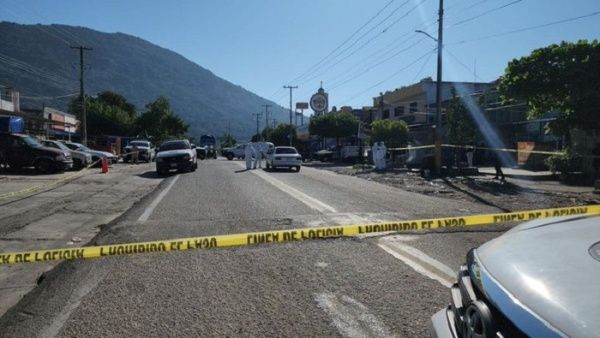
Two soldiers were killed and five others were injured by the explosion of homemade landmines planted by a criminal group in a mountainous area of the Mexican state of Michoacán (west), the Secretary of Defense reported on Tuesday.
The attack occurred on Monday morning in the municipality of Cotija, a border area between Michoacán and the state of Jalisco, when the military was conducting a reconnaissance mission after receiving information about an armed camp in the area, explained Secretary General Ricardo Trevilla.
“At that moment, an improvised explosive device detonated. Unfortunately, two soldiers lost their lives, and five others were injured,” the military leader detailed. The affected soldiers were airlifted to hospitals in the region by a military helicopter, while the rest of the team continued with the reconnaissance of the area.
Trevilla stated that before the explosion, the military unit had located the dismembered bodies of three people, and upon continuing the mission, they confirmed the camp was abandoned.
Asked about the individuals responsible for placing the explosives, the general suggested they could be criminals linked to the local group Cárteles Unidos, which operates in Michoacán and uses these tactics in their territorial dispute with the Jalisco New Generation Cartel, one of the most powerful criminal organizations in the country.
-
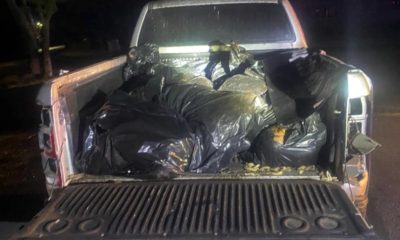
 International5 days ago
International5 days agoDismembered bodies of five found in Guanajuato pickup truck
-
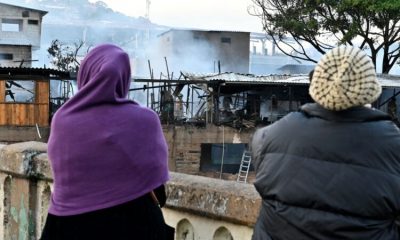
 Central America5 days ago
Central America5 days agoMassive fire destroys 100 shops in Honduras capital market
-

 Central America5 days ago
Central America5 days agoEl Salvador intensifies monitoring of Conchagua seismic activity
-
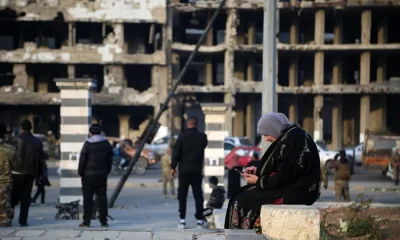
 International3 days ago
International3 days agoFrance will send a diplomatic delegation to Syria after 12 years without official representation
-

 Central America5 days ago
Central America5 days agoEl Salvador anticipates 125,000 international tourists during holiday season
-

 Central America2 days ago
Central America2 days agoEl Salvador’s $9.663 billion budget for 2025 focuses on key sectors with no new debt issuance
-
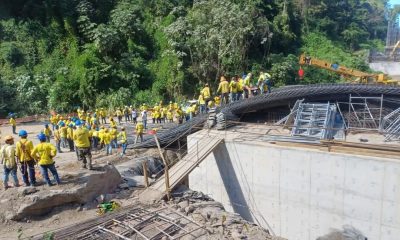
 Central America5 days ago
Central America5 days agoPresident Bukele expresses condolences over tragic Los Chorros collapse
-

 Central America4 days ago
Central America4 days agoHonduras Seizes Over 26 Tons of Cocaine in 2024, Marking Major Drug-Fighting Achievements
-

 Central America4 days ago
Central America4 days agoCosta Rica takes step toward full membership in Pacific Alliance to Stimulate Trade and Jobs
-

 International2 days ago
International2 days agoChrystia Freeland resigns as Canada’s deputy PM over dispute with Trudeau on U.S. Tariff Threats
-

 International4 days ago
International4 days agoGustavo Petro visits the Galápagos Islands for bilateral talks with Ecuador’s Daniel Noboa
-

 International2 days ago
International2 days agoAt least 12 injured in shooting at abundant life christian school in Wisconsin
-

 International2 days ago
International2 days agoVenezuela announces 179 new releases in post-election violence cases
-

 International2 days ago
International2 days agoTrinidad and Tobago Education Minister Lisa Morris-Julian dies in house fire with her children
-

 International2 days ago
International2 days agoEl Salvador’s bitcoin reserves soar in value as cryptocurrency’s bullish surge continues
-

 International2 days ago
International2 days agoMilan’s Via MonteNapoleone overtakes Fifth Avenue as world’s most expensive retail destination
-

 International3 days ago
International3 days agoMaría Corina Machado says that Nicolás Maduro is “cornered” inside and outside Venezuela
-

 International2 days ago
International2 days agoNearly 40 dead in Istanbul after consuming contaminated alcohol in six weeks
-
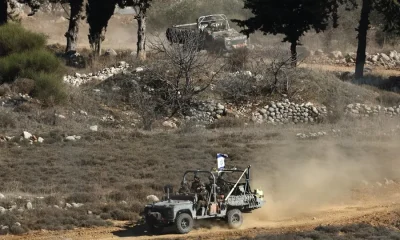
 International3 days ago
International3 days agoNetanyahu: “Israel’s policy in Syria will depend on the emerging reality”
-
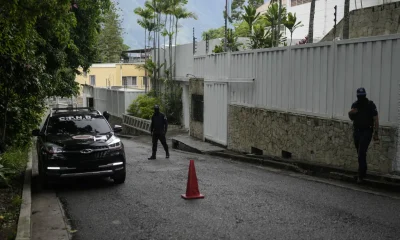
 International4 days ago
International4 days agoVenezuelan opposition in Argentine embassy urges Brazil to expedite safe passage
-

 International4 days ago
International4 days agoMayor Brandon Johnson Vows to Protect Chicagoans from ICE Actions
-
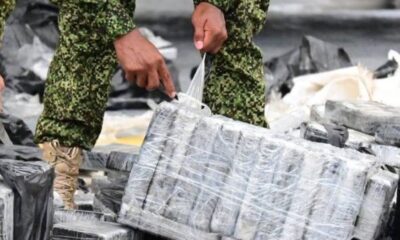
 International4 days ago
International4 days agoEcuador police intercept major drug shipment destined for Europe
-
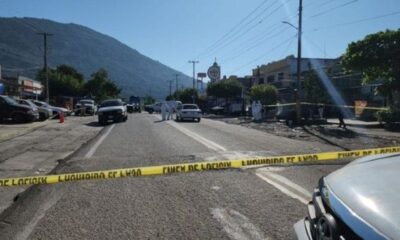
 International15 hours ago
International15 hours agoHomemade landmine explosion in Michoacán kills two soldiers, injures five
-

 International15 hours ago
International15 hours agoColombian nationals arrested for human trafficking and disappearance of migrant boat
-
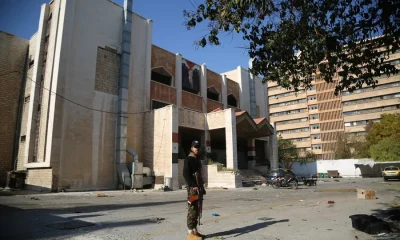
 International3 days ago
International3 days agoThe new Syrian authorities plan to end compulsory military service
-

 International3 days ago
International3 days agoLula asks for severe sanction if the guilt of general arrested for coup is proven
-

 International3 days ago
International3 days agoThe Constitution of Venezuela, a quarter of a century later
-
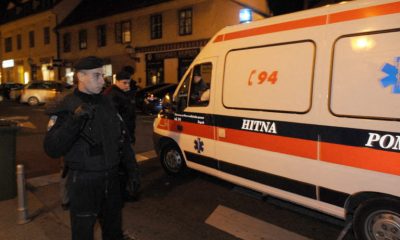
 International15 hours ago
International15 hours agoAustrian man arrested in Croatia with deceased woman as passenger in his car
-

 International15 hours ago
International15 hours agoEcuador announces debt swap of $1.527 billion to protect Amazon rainforest




















